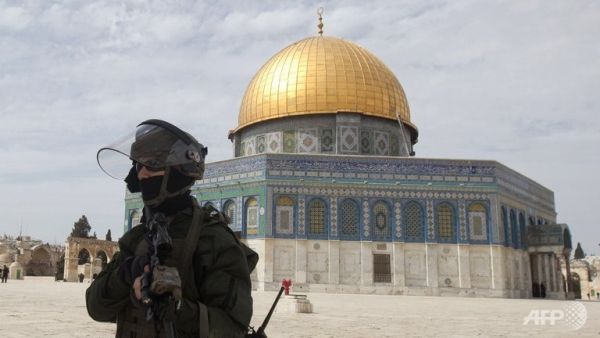Israel will make “dramatic decisions” in order to reach a final peace agreement with the Palestinians, Israel’s chief negotiator Tzipi Livni said Tuesday while warning that certain members of Prime Minister Benjamin Netanyahu’s coalition were making this job more difficult.
Livni’s remarks came as Israeli and Palestinian negotiators met for their second round of peace talks in Jerusalem on Tuesday.
A two-hour meeting took place in secret in the morning, with negotiators from both sides returning to Jerusalem’s King David Hotel for a “second round of talks” in the evening, an official involved in the talks said on condition of anonymity to AFP.
“A meeting was held today between the Palestinian delegation, headed by Saeb Erakat and Mohammad Shtayyeh, and the Israeli delegation of [Justice Minister] Tzipi Livni and Yitzhak Molcho,” the official told AFP.
Details of the morning discussions were not revealed, following a request from Washington last week for a total news blackout over the talks.
In the evening, the negotiators were expected to focus on “how to begin discussing borders and security,” a source said, adding that the talks would cover the issues of Jerualem and settlements.
Both sides was then expected to present a list of names of the negotiators who would chair committees on key issues of the talks, such as Jerusalem, borders, security, prisoners, water, settlements and the economy.
“The Palestinians already have their list of names, they just need the list from the Israelis,” he told AFP.
Although the Palestinian side had pushed for the US to exert more pressure on the Israelis during the negotiations, the Israeli side insisted during Tuesday's meeting that the future of the talks progress without US involvement, he said.
Another meeting between the two sides has been planned for Jericho next week.
Livni, speaking on Israel Radio, also refrained from commenting on the talks, telling the radio show that ensuring the negotiations happened out of the eye of the media would built mutual trust.
But she did say there would be “dramatic decisions in the end,” adding that many hard-line elements in Netanyahu's coalition government are not supporting the peace process and are making them more difficult.
Talks stalled in 2010 following Israel's continued settlement activity on Palestinian land.
The Palestinian side demanded a settlement freeze in exchange for resuming talks – a condition that Israel refused.
Livni said that 'hawkish parties' in the government are making the talks more difficult because of their opposition to establishment of a Palestinian state, the centerpiece of any peace deal.
“It is no secret that in this coalition there is at least one party ... which objects to the idea of two states for two peoples, which is something I support with all my heart,” Livni said, according to AP.
“It is definitely very problematic in regard to the negotiations,” she said.
Economy Minister Naftali Bennett, who is leader of the Jewish Home Party, the coalition’s third largest component, is fiercely against conceding territory to the Palestinians as his party is allied with the Jewish settler movement.
According to AP, Bennett is not alone. Many Israelis are reluctant to withdraw from the West Bank and East Jerusalem, which Israel occupied during in the 1967 war.







